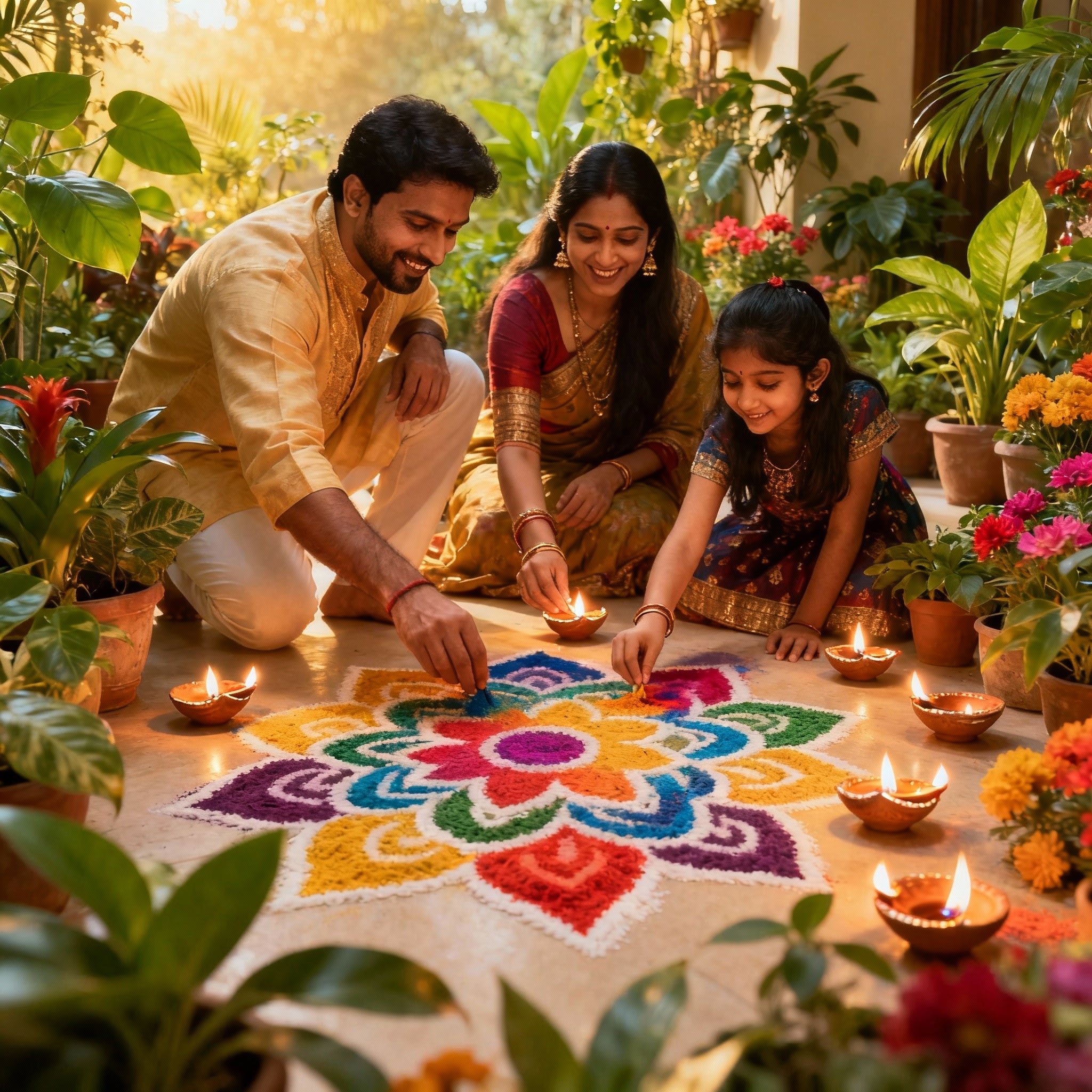Diwali, the festival of lights, is a time for new beginnings, joy, and inviting abundance into our lives. One beautiful way to create a welcoming, fresh, and vibrant home is by adding auspicious plants that bring not just greenery but also good fortune. Here are 10 lucky plants you should bring home this Diwali.
1. Money Plant (Epipremnum aureum)

-
Believed to attract wealth, prosperity, and good luck into the home.
-
Extremely easy to grow—thrives in water or soil, even in low light.
-
Acts as an air purifier, removing toxins like formaldehyde.
2. Tulsi (Holy Basil)
-
Considered sacred, promotes spiritual health and positivity in Indian culture.
-
Has medicinal properties—boosts immunity and acts as a natural air purifier.
-
Traditionally placed in courtyards or balconies for protection and purification.
3. Jade Plant (Crassula ovata)
-
Known as “money plant” in Feng Shui for inviting fortune and financial growth.
-
Hardy and drought-tolerant, requires minimal care.
-
Symbolizes friendship and renewal, often gifted to loved ones.
4. Lucky Bamboo
-
Represents health, wealth, and harmony—number of stalks has different meanings.
-
Thrives in water and doesn’t require direct sunlight, making it ideal for indoor décor.
-
Thought to enhance positive energy and bring balance to living spaces.
5. Areca Palm

-
Effective air purifier, increasing oxygen and removing indoor pollutants.
-
Elegant, feathery leaves bring a tropical touch to Indian homes.
-
Symbolizes peace, success, and resilience.
6. Snake Plant (Sansevieria)
-
Converts CO₂ to oxygen even at night, making it perfect for bedrooms.
-
Tough and tolerant of neglect—thrives in low light and little water.
-
Considered a “protective” plant, wards off negative energies.
7. Aloe Vera

-
Known for healing and cosmetic uses—soothes skin and minor cuts.
-
Easy to grow indoors and helps eliminate toxins from the air.
-
Symbolically linked to positivity and removing negativity from the home.
8. Peace Lily (Spathiphyllum)
-
Unique white flowers represent purity and spiritual well-being.
-
Removes mold spores and toxins from indoor air, promoting health.
-
Requires little light, making it great for Indian apartments.
9. Rubber Plant (Ficus elastica)
-
Symbolizes abundance, happiness, and prosperity in various cultures.
-
Large, glossy leaves add a dramatic touch to home interiors.
-
Effective at filtering air, absorbing pollutants like formaldehyde.
10. Marigold (Tagetes)
-
Traditionally used in Diwali decorations and spiritual rituals.
-
Vibrant orange/yellow blooms represent joy, auspiciousness, and vitality.
-
Repels insects and can be easily grown in pots or gardens

0 comments